While we at SteamDeckHQ can appreciate the use of emulation as a tool for game preservation, especially as certain games are no longer available for sale and older hardware begins to fail, we do not support or condone piracy in any way.
If you keep up with the emulation scene, you may well have just heard the news in the past few hours that Nintendo has opened a legal case against the developers behind the Switch Emulator, Yuzu.
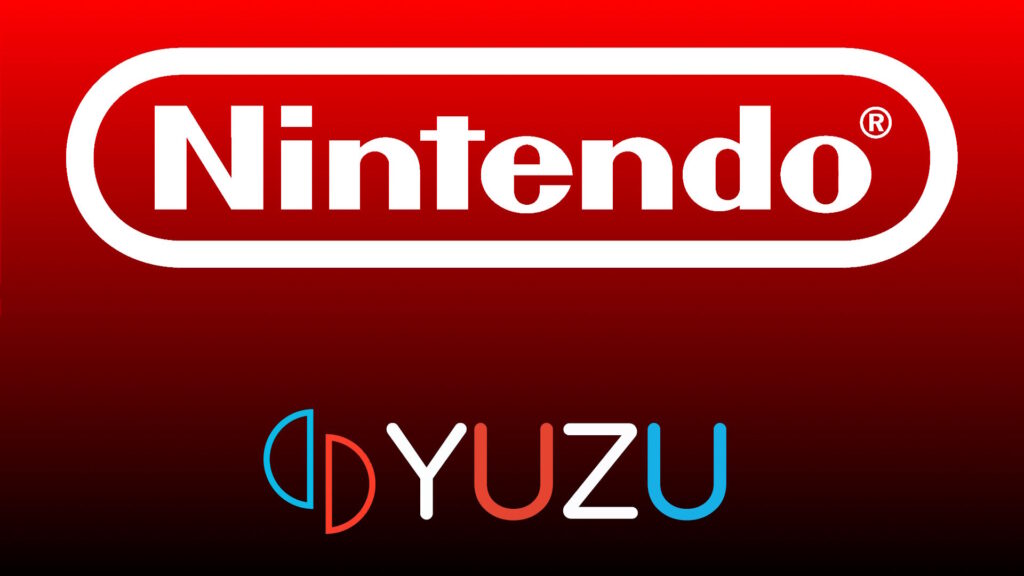
Nintendo is no stranger to legal battles when trying to protect its image or IP. It frequently takes down fan games, especially Pokemon and Mario ones. But these usually take the form of a cease & desist and proceed no further once the developers take their projects down.
This time, Nintendo has opened full legal proceedings against the Yuzu team by filing a case against them with the District Court of Rhode Island in the United States.
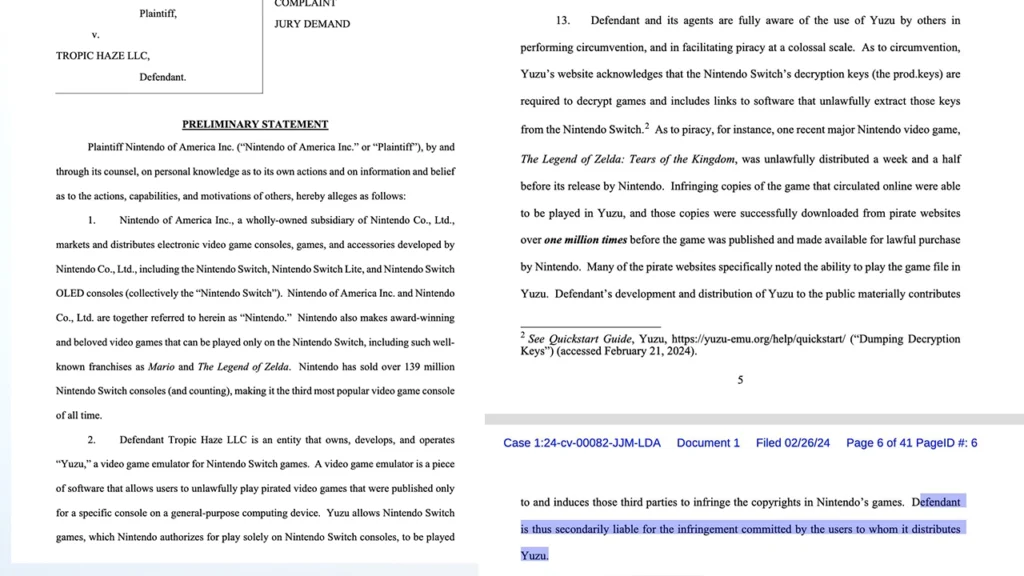
What are their reasonings behind opening this case against Tropic Haze LLC (the legal entity behind the Yuzu project)?
Firstly, Nintendo alleges that Yuzu ultimately contributes to lost income for Nintendo due to facilitating piracy. They point out that Zelda: Tears of the Kingdom was leaked online over a week before its release, and subsequently downloaded over 1 million times, with the piracy websites offering this download recommending users to use the Yuzu emulator to play the game.
Secondly, Nintendo holds that the decryption keys necessary to play Switch games belong, well, on the Switch itself. The Yuzu team provides guides and software to extract these keys from your Nintendo Switch and place them in the Yuzu Emulator, which allows the emulator to decrypt Switch games and play them. Nintendo alleges that extracting these keys from a Switch console is unlawful and that the Yuzu emulator being able to make use of these keys to play potentially pirated Switch games, is also unlawful.
Ultimately, Nintendo holds the Yuzu team responsible for creating an emulator that was capable of making use of this pirated copy of Tears of the Kingdom, as well as the Switch decryption keys, which Nintendo alleges only a Switch should be able to do. They believe that is why so many people downloaded the pirated copy. They also cite that the Yuzu team's income via Patreon greatly increased around this time, meaning they directly benefited from Tears of the Kingdom's leaking and so many people playing the pirated copy of the game.
The Yuzu team actually pulls in considerable money, with their Patreon drawing in over $300,000 a year at the time of writing this article. It's very possible that this also irks Nintendo, especially if they view the Yuzu team as monetizing the emulator, thus making a profit over what they consider to be promoting piracy of their software.
Nintendo also seems to specifically target the emulator's main developer "Bunnei" in the case as well. Stating that Bunnei appears to post articles and mention in the Yuzu Discord channels that games are working with Yuzu either on their release date or sometimes before their release date, Nintendo clearly calling into question how Yuzu developers are confirming games work with Yuzu before they are even released. They also state that Bunnei has confirmed many times that they dump Switch games from their Switch to their PC, which as stated earlier, Nintendo believes is a DMCA violation.
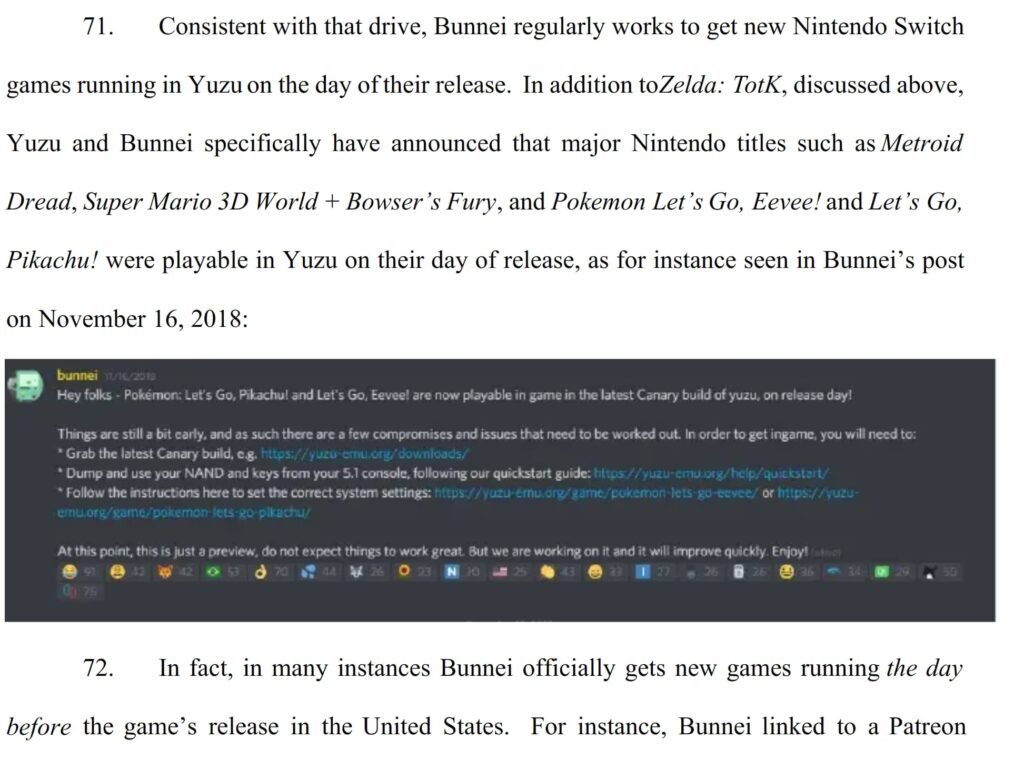
They also include a quote from a Discord message by Bunnei stating that "users probably just pirate a Yuzu folder with everything", indicating that the Yuzu team is well aware that a lot of users of their emulator use it for piracy and not for playing games that they own.
There is legal precedent for emulators being legal, of course. Famously, Sony attempted to sue the Bleem! company over 20 years ago. Bleem! was a PlayStation 1 emulator that existed on the Dreamcast, and while Sony lost their court cases against Bleem!, they had to close shortly thereafter due to the extensive legal fees.
Every case is different though, and situations have changed over the past 20 years, so how this case will go is anyone's guess right now, that's if it even goes as far as court. The Yuzu Team could consider it not worth the fight, close the project down, and try to settle with Nintendo out of court. It appears as though the Yuzu team has yet to make a comment on the case.
Nintendo is ultimately seeking the closure of the Yuzu project, as well as seeking damages for alleged lost sales as a result of Yuzu's ability to play Switch games.
Could this Spell Greater Trouble for Emulation?
This is a bit of a tricky one. The Yuzu emulator might be being targeted due to the monetary income the project is receiving, as well as the fact that the Switch is still Nintendo's main money-maker, which they believe is being harmed by Yuzu's existence. Nintendo is certainly aware that other emulators have existed for decades and does have grievances with them, such as their move last year to stop the Gamecube/Wii emulator Dolphin from coming to Steam, but Yuzu is the one they've singled out and are trying to fully shut down.
If Nintendo wins the case, and a precedent is set here, it could override the existing precedent of the Sony V. Bleem! case, which is everyone's favorite case to cite as the reason emulation is legal. If that precedent is set, then it may cause other companies to start taking action against other emulators, and also Nintendo to look beyond Yuzu.
Whichever way this goes, we'll be watching, waiting, and keeping you up to date with this case as it unfolds.
While we at SteamDeckHQ can appreciate the use of emulation as a tool for game preservation, especially as certain games are no longer available for sale and older hardware begins to fail, we do not support or condone piracy in any way.
If you enjoyed this article, check out the rest of the content on SteamDeckHQ! We have a wide variety of game reviews and news that are sure to help your gaming experience. Whether you're looking for news, tips and tutorials, game settings and reviews, or just want to stay up-to-date on the latest trends, we've got your back.


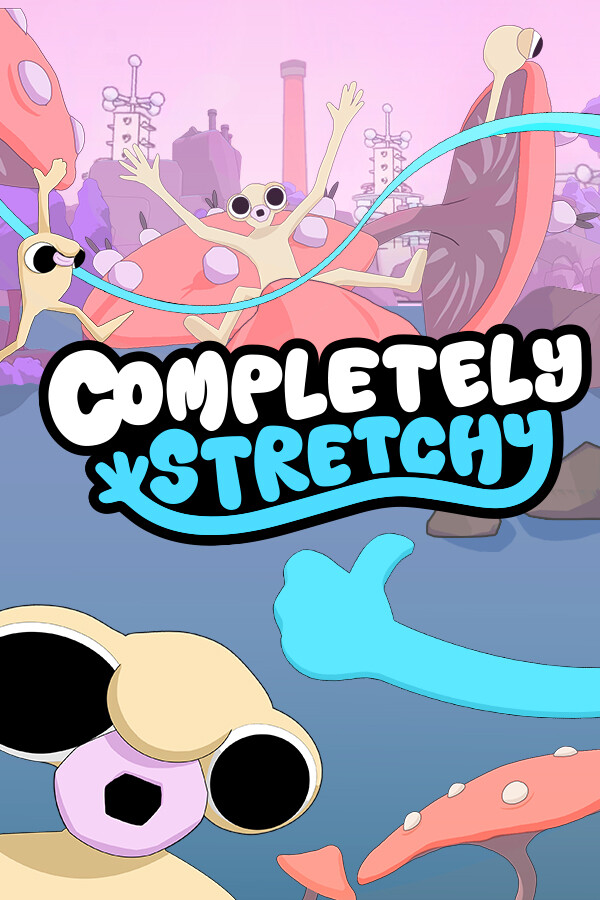

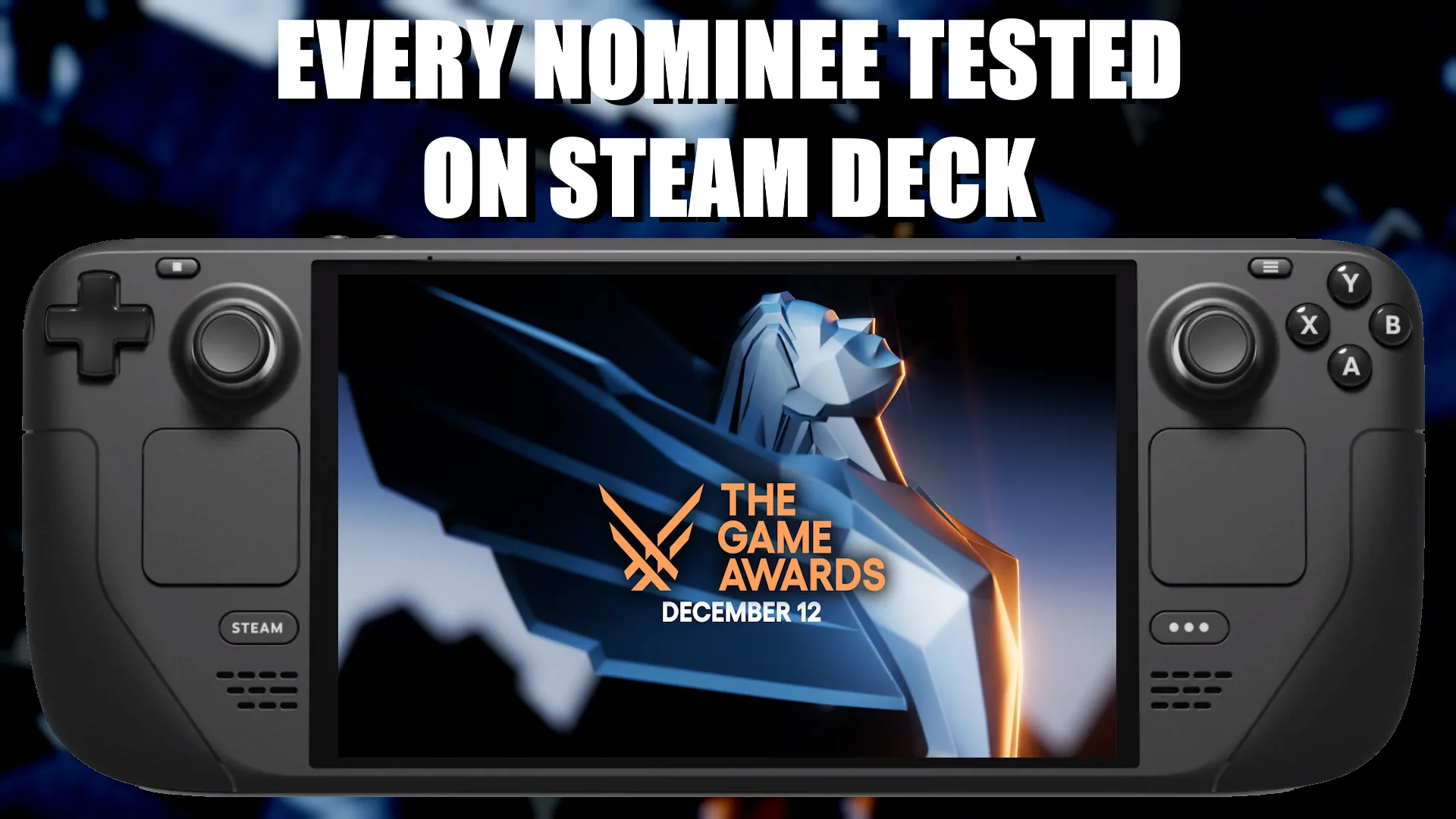



Bro 300k is change money for Nintendo, how can they be this pity. Also if they provided a way to play their games on multiple platforms this wouldn't be happening.
Skill issue.